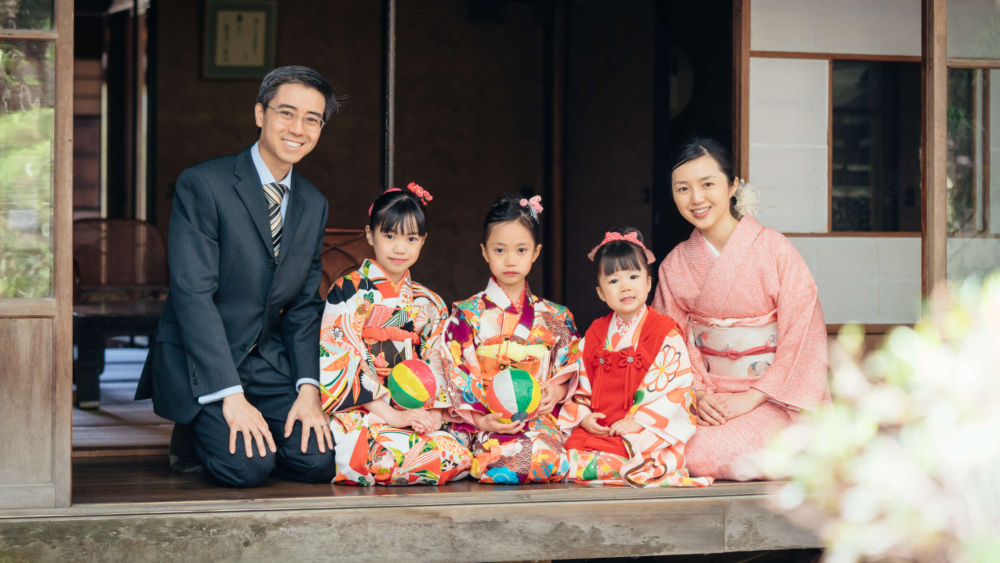Andrew and Joanna Wong are members of OMF Australia who are serving to plant a church in Japan. Andrew describes their strategy for planting a church in one of the least reached areas in the country.
Five years ago, we arrived in Japan for our second term of missionary service to plant a new church in the small regional town of Yahaba in the north of Japan. Despite decades of missionary effort, Japan is a country with very few Christians (about 0.5 per cent) and our prefecture of Japan is considered particularly unreached, with the lowest proportion of Christians compared to the nation as a whole.
To say it was a daunting task would be an understatement. Our team – our family of five and Hoi-Yan, a fellow Aussie – was the entire team of Christians to draw from. There were no Japanese Christians to work with – we were starting from scratch. Can a church really be planted with so few people?
The way we do discipleship and evangelism will likely be the model that is copied (for better and for worse) for decades to come.
Starting well, with love
So, where does one start when planting a church in Japan?
In the same way that the DNA of a human being is passed on at conception, we knew that what we established as our “disciple-making DNA” in the embryonic stage of the church would have significant repercussions for the future. Experience has shown that the way we do discipleship and evangelism will likely be the model that is copied (for better and for worse) for decades to come.
So the first key area of focus has been on what has been reproducible all over the world since the birth of the church: significant time in prayer, meditation on God’s word and learning from Christ’s example on how to love one another.
We found ourselves frequently drawn to Jesus’ not-so-secret but often forgotten promise that the way to show people we are his disciples is not primarily through slickly run, attractive events … but through the Christian community loving one another as he has loved us (John 13:34-35).
Emma’s plight
My wife Joanna first met Emma (not her real name) at the Parent Teacher Association for our daughter’s kindergarten. She seemed like a regular, well-put-together mum, helping to organise events for mums to be involved in the kindergarten life of the kids. But it was only when our teammate Hoi-Yan met her at the local government agency providing low-cost meals for families that we realised things weren’t as they seemed.
Her story was, sadly, quite a common one: a fraught marriage, a soon-to-be absent father, a struggle with single-mothering rowdy boys and an economic situation commonly referred to as being “working poor”.
What could we do to love and bless her?
We went out together on family outings she felt too stressful to do by herself – ice skating, bowling and camping. When we discovered how small her apartment was, I built custom shelves to help ease her living space. We cooked meals for her. I hung out with her sons, knowing how much they needed a better male role model in their lives.
We prayed for her … and then together with her. And soon, she wanted to know more.
We started with Christian parenting classes – offering a perspective on family that can be quite far removed from Japanese thinking. We were so encouraged when she mentioned apologising to her boys after getting upset – an action that would be unthinkable in most Japanese households, but something she picked up from our classes.
Reading the Bible with Japanese friends always fills us with a mixture of joy and self-doubt. Joy because the average Japanese person would rarely want to be seen to be taking “religion” so seriously as to read its literature. Most Japanese people equate all religions with violence – citing as proof Japan’s history in World War II, as well as violent acts perpetrated by local cults.
Emma has persisted in trying to grasp what God is saying to her.
But there is self-doubt at each step as we wonder: did they actually understand what we said? Did my lack of Japanese vocabulary hinder the explanation? Many key Christian words – such as prayer, forgiveness and sin – are often laden with a meaning ever so slightly different in the Japanese context, muddying the waters even more.
Yet, Emma has persisted in trying to grasp what God is saying to her in the Bible and continues to meet with our team. Our words may fail us, but we hope that as she observes the genuine, Christ-like love we have for one another, she will experience the transforming power of the gospel – and not just for her but for generations to come. For it is only when stories like hers are repeated over and over that a church can be planted in little towns like ours in regional Japan.




